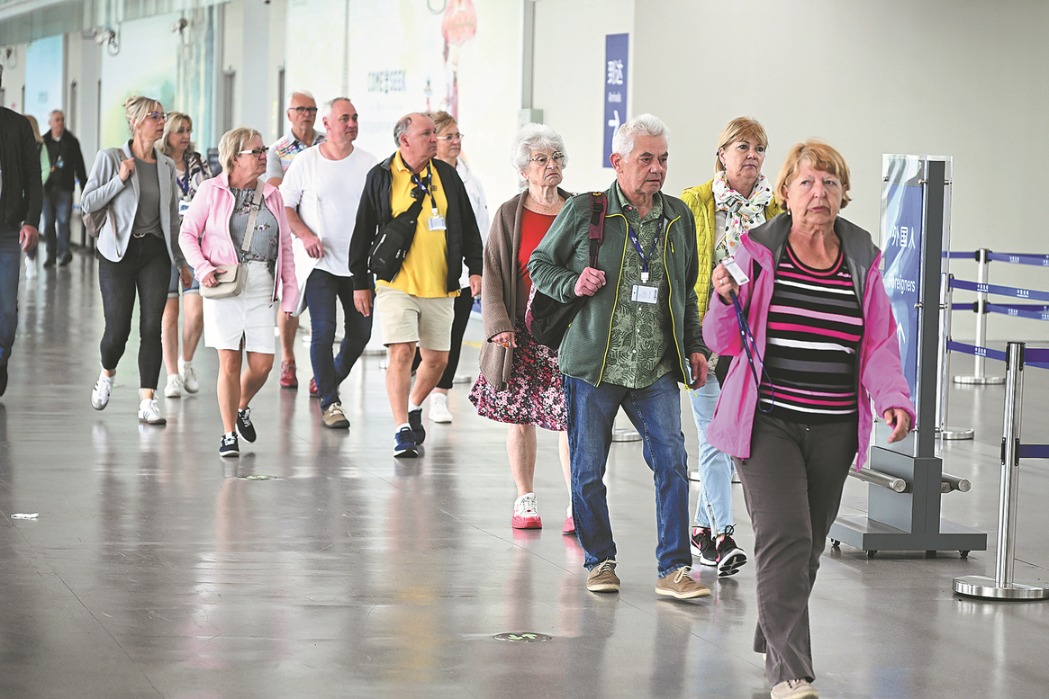Boeing may reimburse airlines for 737 MAX grounding
By SCOTT REEVES in New York | chinadaily.com.cn | Updated: 2019-06-28 06:02

Boeing CEO Dennis Muilenburg said on Wednesday that the aircraft manufacturer is having "ongoing conversations" with airlines about possible reimbursements following the worldwide grounding of 737 MAX jets.
The airlines haven't disclosed how much they are seeking from Boeing, but some analysts peg industrywide losses at about $1 billion. In an interview with Axios, Muilenburg didn't say how Boeing would compensate airlines, but it could be cash, a discount on future orders or additional pilot training and services.
Airlines seeking compensation include Air China, China Eastern Airlines, China Southern Airlines, Norwegian Air, Turkish Air, Ryanair, Flydubai and United Airlines.
"Reimbursement isn't a technical problem," John Cochran, president of Eaglemark, an aviation consulting firm and professor emeritus of Aerospace Engineering at Auburn University, told China Daily USA. "It's a matter of first impression. Some of what Boeing proposes to do may be contractual and it's certainly sound public relations. Boeing wants to keep its customers happy."
The 10,000-member pilots union for Southwest Airlines said this month it will ask Boeing for compensation to cover legal costs and lost income for pilots due to the 737 MAX grounding.
The union hasn't said how much pilots have lost, but it could be as much as $9 million a month, the Dallas Morning News reported.
Southwest has 34 MAX jets in its fleet. The airline said it plans to resume MAX flights on Sept 2, but the union said "there is no accurate estimate of when the MAX will return to service."
Airlines have used other planes when possible to replace grounded MAX jets, but some flights have been canceled. The airlines apparently seek compensation for lost revenue as well as storage and the cost of preparing the MAX to return to commercial service when the US Federal Aviation Administration and other regulators say it's safe to fly.
Boeing MAX jets were grounded worldwide following crashes March 10 in Ethiopia and October 29, 2018, in Indonesia that killed a total of 346 passengers and crew.
Preliminary investigations suggest the aircraft's Maneuvering Characteristics Augmentation System (MCAS), an automated anti-stall device, apparently forced the noses of Lion Air and Ethiopian Airlines flights down and into a fatal plunge when it erroneously determined the planes were about to stall. To avoid a stall, MCAS points the nose of the plane down to gain air speed.
There are about 400 MAX jets in service worldwide, including about 97 in China. Wall Street analysts expect Boeing to spend about $1 billion to update and install new software worldwide to prevent the MCAS system from repeatedly pointing the nose of the plane down and to prevent the system from being activated by only one of two exterior sensors.
In the interview with the news website Axios, Muilenburg refused to say the MCAS system was a "red flag" during the MAX's six-year development and certification process. He said there were a "number of factors" involved in the fatal crashes.
Earlier this month, Muilenburg said he expected some MAX jets to return to commercial service by the end of the summer, but it could be months before the worldwide fleet returns to the air. Boeing said it has completed the software update for the MCAS system and has tested it on 207 flights totaling 360 hours. The US Federal Aviation Administration has not said when its review of the updated software will be completed.
























